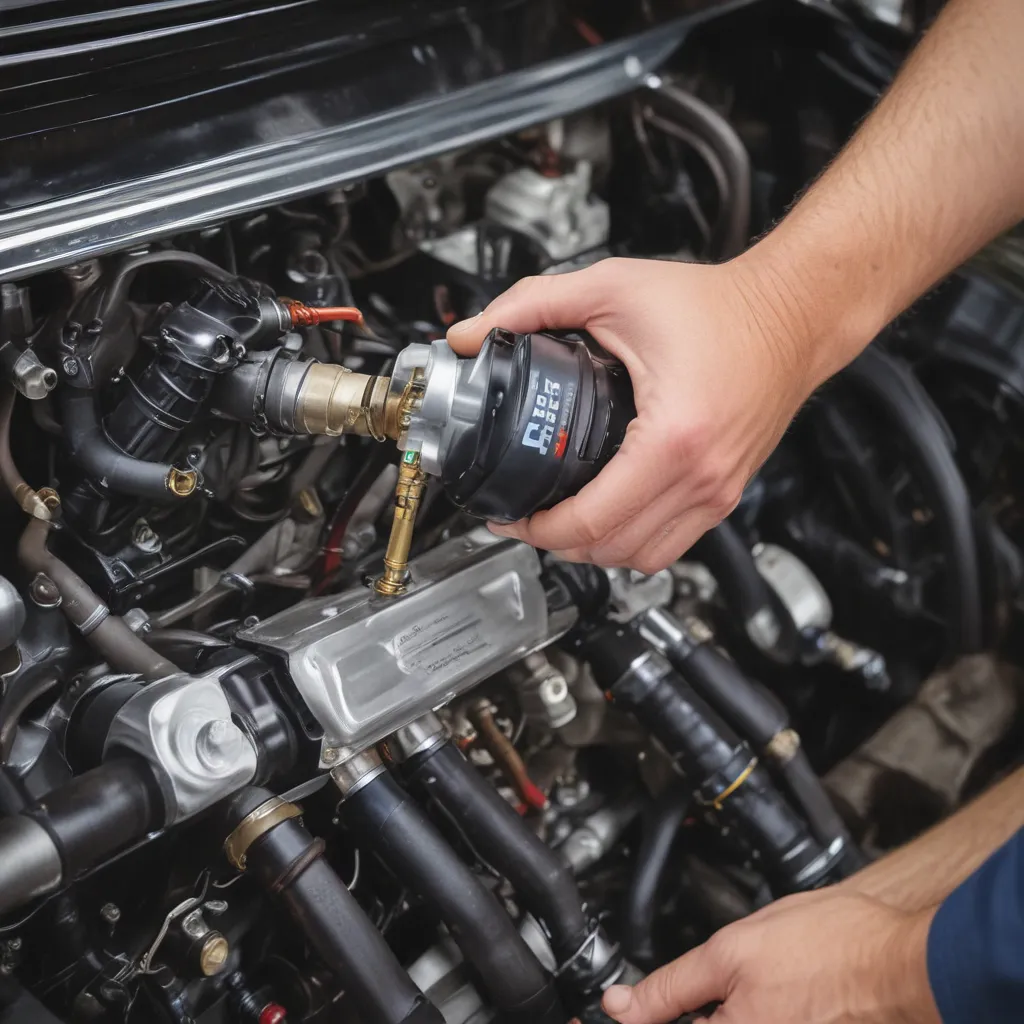
The Importance of Fuel System Maintenance
Ah, the open road – the gentle hum of the engine, the wind in your hair, and the promise of adventure just over the horizon. But as any seasoned RV or fleet vehicle owner knows, keeping that dream alive requires a little bit of elbow grease. And at the heart of it all? Your fuel system.
Think about it – your fuel system is the beating heart of your vehicle, pumping the lifeblood that keeps those pistons firing and those wheels turning. Neglect it, and you might as well be driving on empty. That’s why proper fuel system maintenance is so crucial, whether you’re hitting the open road in your trusty RV or keeping your fleet of work vehicles running like a well-oiled machine.
The Anatomy of a Fuel System
Now, I know what you’re thinking – “Fuel system maintenance? Sounds like a job for the pros.” And you’re not wrong. But trust me, understanding the basics of your fuel system can go a long way in keeping you on the road and out of the repair shop.
Let’s start with the basics. Your fuel system is made up of several key components, each of which plays a vital role in keeping your engine fed and happy. We’ve got the fuel tank, where all the good stuff is stored. The fuel pump, which does the heavy lifting of pushing that fuel from the tank to the engine. The fuel lines, which act as the highways for your fuel to travel. And let’s not forget the fuel filter, the unsung hero that keeps all that gunk and grime from clogging up your system.
Fuel System Troubleshooting
Now, I know what you’re thinking – “Fuel system maintenance? Sounds like a job for the pros.” And you’re not wrong. But trust me, understanding the basics of your fuel system can go a long way in keeping you on the road and out of the repair shop.
So, what sort of problems can plague your fuel system? Well, the list is longer than a cross-country road trip, my friend. You might be dealing with a faulty fuel pump that’s struggling to do its job. Or maybe your fuel lines have sprung a leak, leaving you high and dry. And don’t even get me started on fuel filters – those little fellas can clog up faster than a highway during rush hour.
Preventative Maintenance Strategies
But fear not, my RV and fleet-owning comrades! With a little bit of proactive maintenance, you can keep those fuel system gremlins at bay and enjoy a smooth, worry-free ride.
First and foremost, let’s talk about fuel filter replacements. These unsung heroes of the fuel system are your first line of defense against all that gunk and grime. Depending on your vehicle’s make and model, you should be swapping out your fuel filter every 30,000 to 50,000 miles. Trust me, it’s a small price to pay to keep your engine running like a dream.
And let’s not forget about those fuel lines. Over time, those rubber hoses can become brittle and crack, leaving you stranded on the side of the road with a fuel leak. That’s why it’s a good idea to give your fuel lines a thorough inspection every time you service your vehicle. Look for any signs of wear and tear, and don’t hesitate to replace them if they’re showing their age.
Real-World Examples and Case Studies
Now, I know what you’re thinking – “That’s all well and good, but how does this apply to my RV or fleet vehicles?” Well, let me tell you a little story that’ll really drive the point home.
I’ll never forget the time I was out on the open road, cruising along in my trusty RV, when suddenly, the engine started sputtering and coughing. Turns out, the fuel pump had given up the ghost, and I was left stranded on the side of the highway, miles from the nearest repair shop.
It was a real nightmare, let me tell you. But you know what saved the day? The fact that I had been diligent about my fuel system maintenance. I had that fuel pump replaced in no time, and I was back on the road, enjoying the open air and the open road.
And let’s not forget about my fleet-owning friends. I’ve seen it time and time again – a little neglect of the fuel system can lead to big, costly problems down the line. Take the case of the construction company that ignored their fuel filters for too long. Before they knew it, their entire fleet was sidelined, costing them thousands in lost productivity and repair bills.
Conclusion: The Key to Keeping Your Vehicles Running Strong
So, there you have it, folks – the inside scoop on keeping your fuel system in tip-top shape. Whether you’re an RV enthusiast or a fleet manager, remember that a little bit of proactive maintenance can go a long way in keeping your vehicles running like a dream.
Remember, your fuel system is the heart of your vehicle, so treat it with the care and attention it deserves. Replace those fuel filters, inspect those fuel lines, and stay on top of any potential issues. And who knows? Maybe you’ll even find a new appreciation for the humble fuel pump – the unsung hero that keeps your adventures alive.
So, what are you waiting for? Grab your wrench, put on your thinking cap, and let’s get to work on keeping those RVs and fleet vehicles running like a dream. And hey, if you need a little extra help, you know where to find us – https://orangecountyrvrepair.com/. We’re always here to lend a hand and keep your vehicles on the road.
